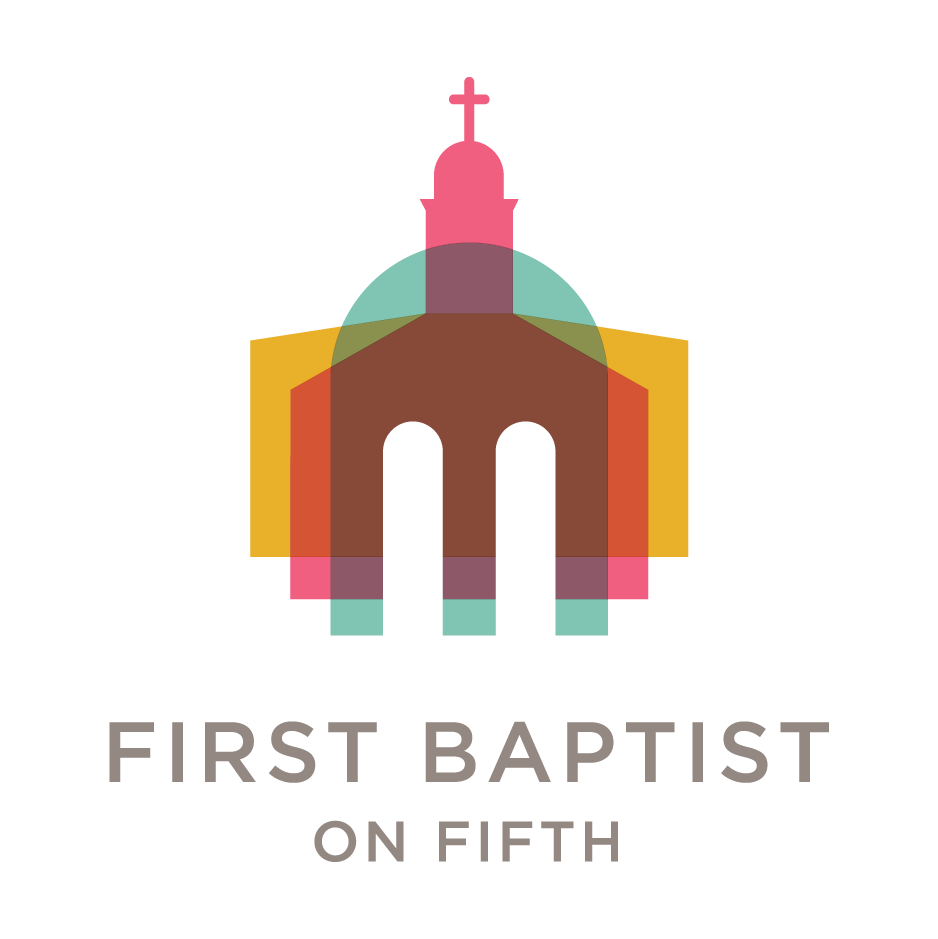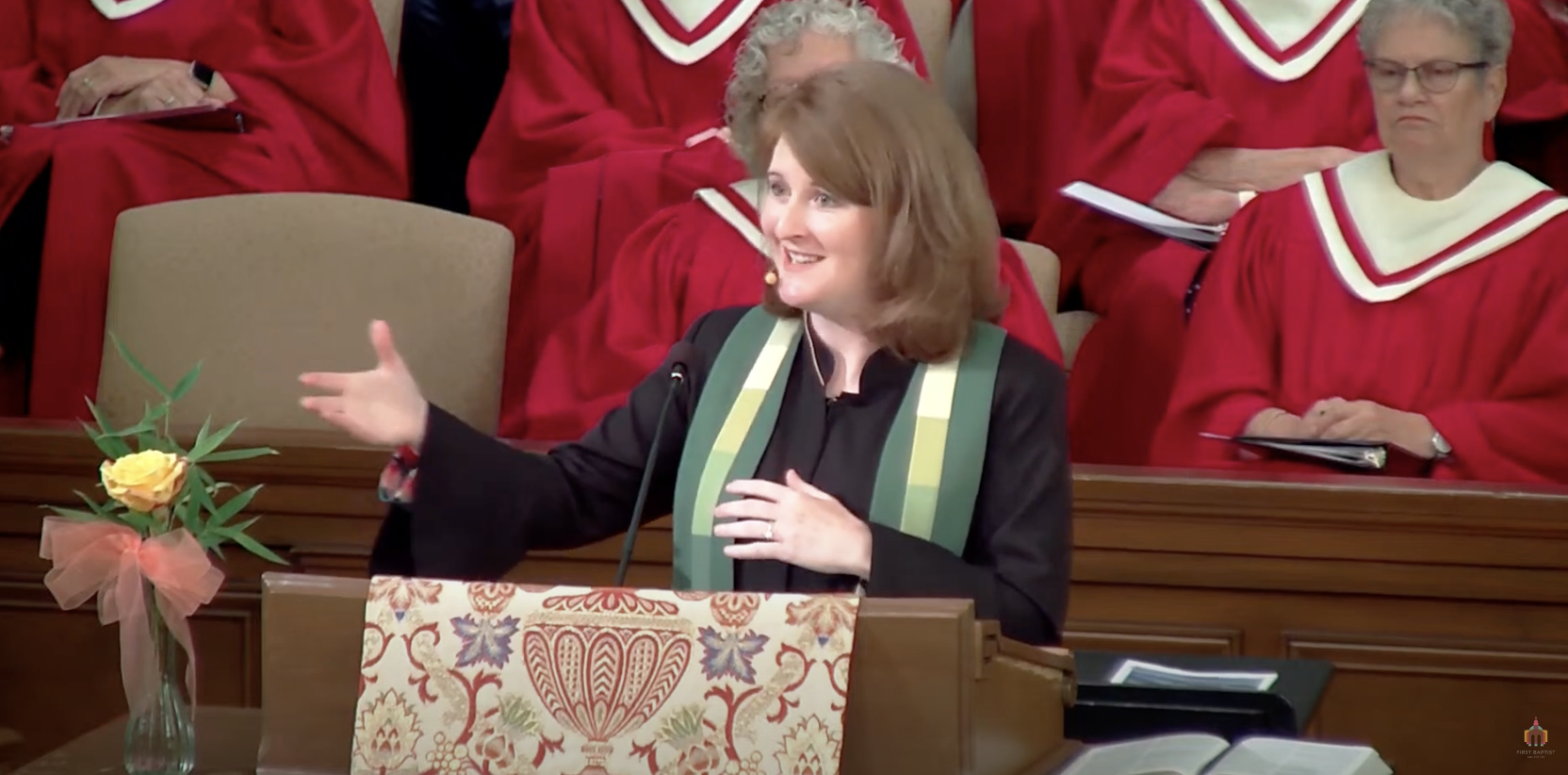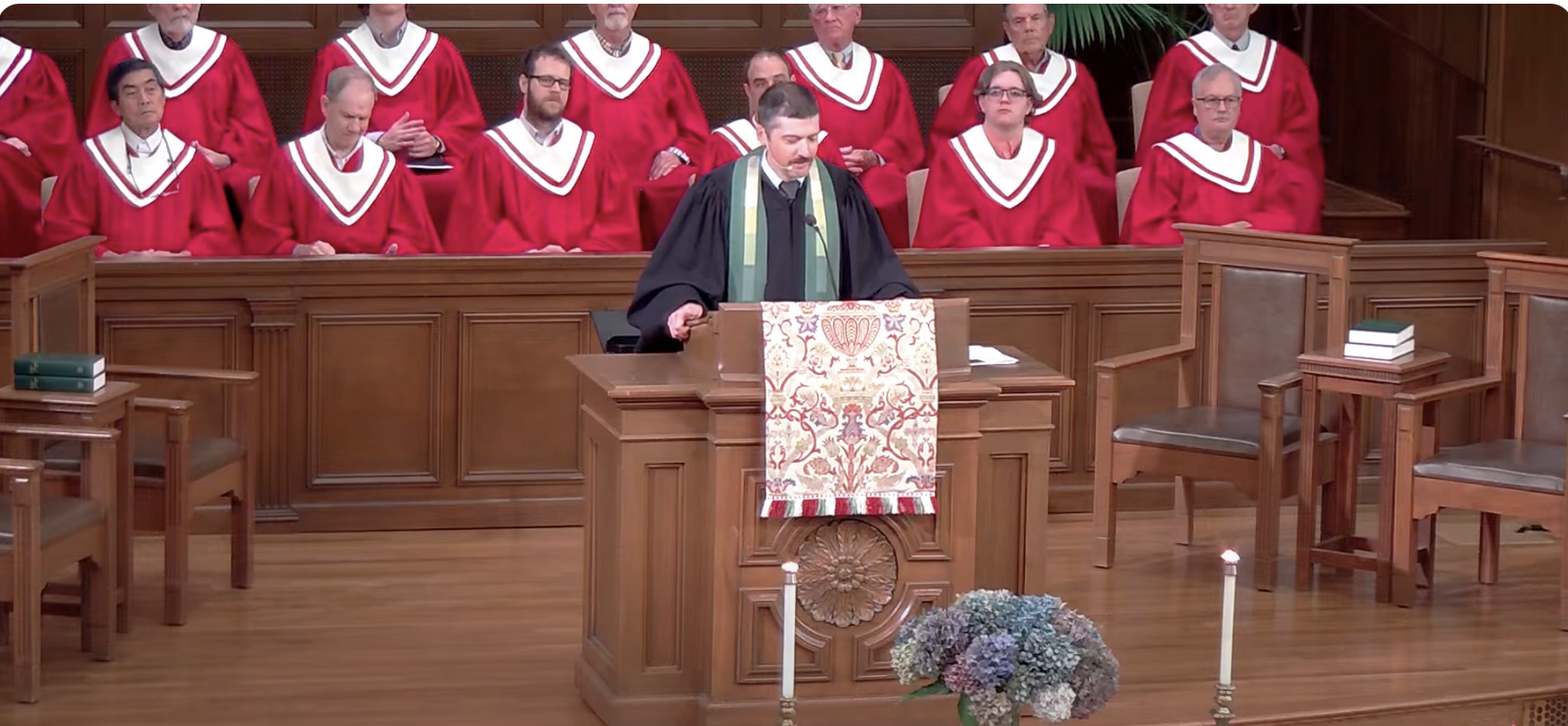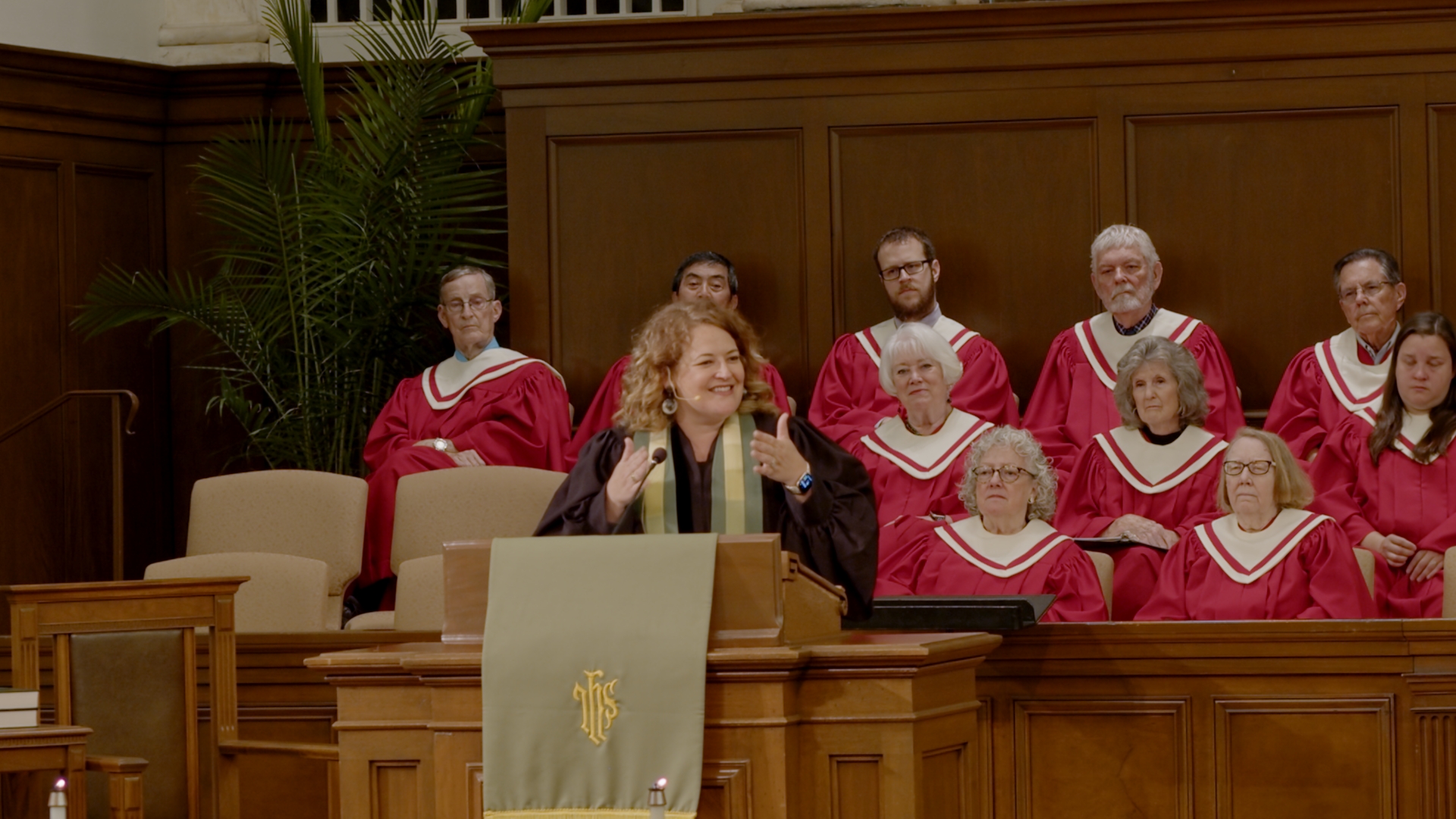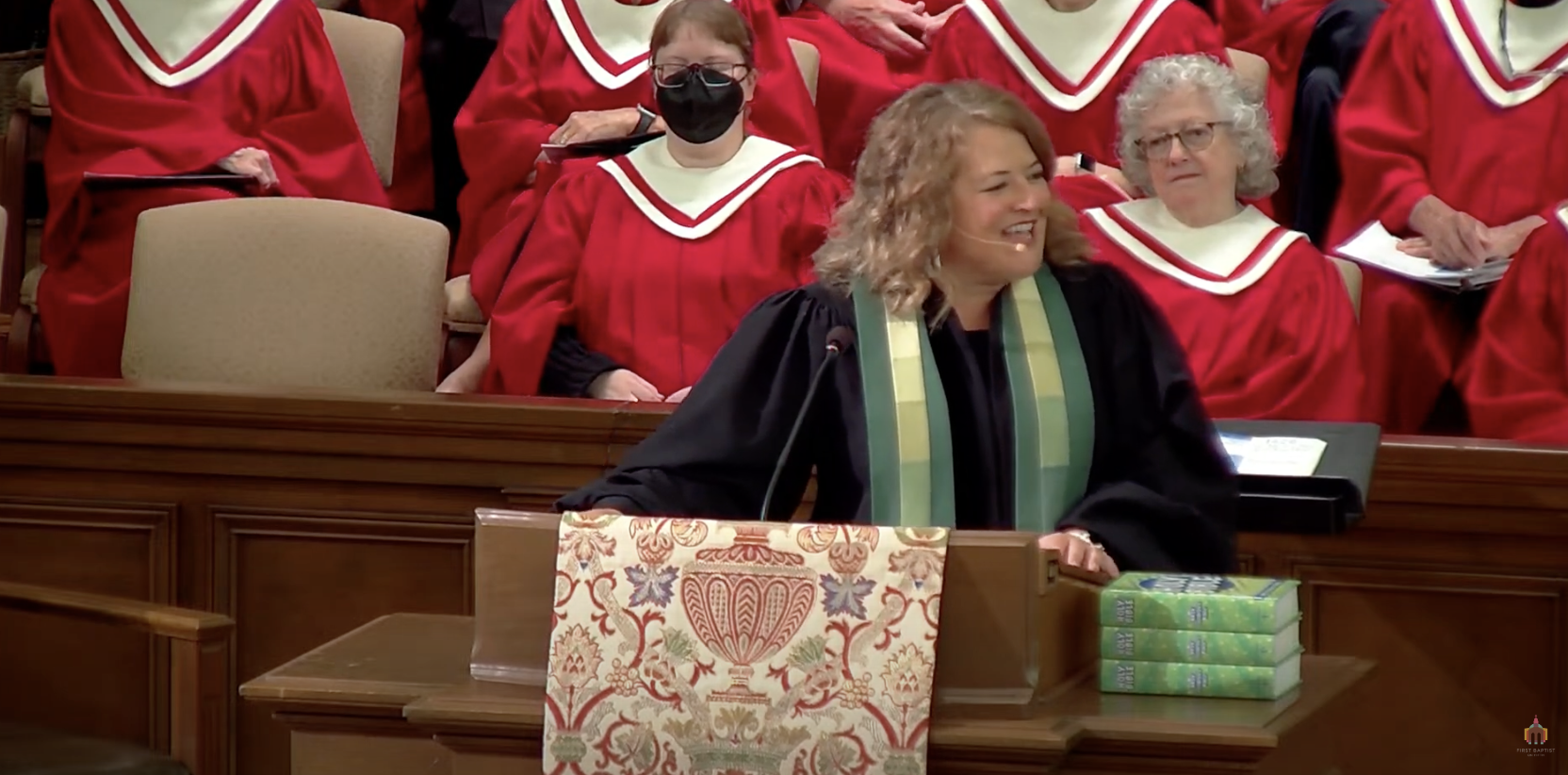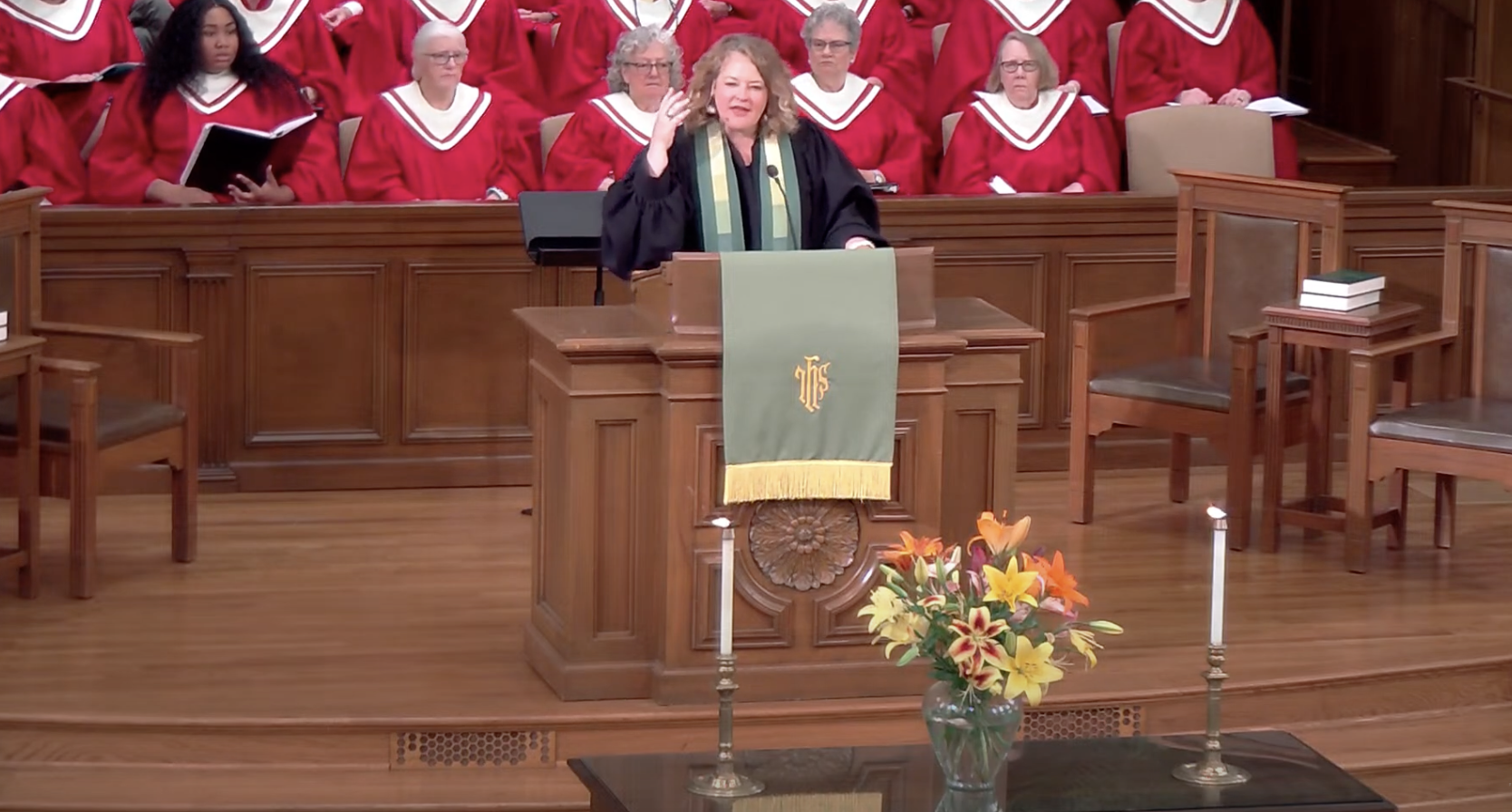Today’s gospel story may be short, but it is rich and full with a word from the Lord today, a word of good news for each of us and all of us to hear. So let’s lean in and listen.
As the story begins, Jesus says to his disciples, “let us go across to the other side.” They were on the Sea of Galilee, that stretch of water in the center of Israel. On this side of the lake, the disciples had their bearings. They knew the landmarks, where they could pick up the best fish sandwich, what local handymen to call on if their boat sprang a leak. On this side, they knew and were known. On this side, their place within the landscape of things was sure. On this side, fear and anxiety were held at bay if only for familiarity’s sake.
Yet Jesus had told them they’d be going to the other side. A crossing would situate them moving from the Eastern side, which was heavily Jewish, to the Western side, east of the Jordan River, a place which was largely Gentile, or non-Jewish. The Gentile side. The unfamiliar side. The side where they no longer occupied the status or the privilege of their home. The side where they can’t help but to feel threatened, because everyone around them would be strange, foreign, unknown, alien. The side that you don’t just drop into, certainly not at night, after a long day, with a boat full of Israelites.
Jesus didn’t shy away from this crossing, though, for indeed his whole life and ministry was patterned on the way of crossing, the way of the cross, if you will. Four times in the Gospel of Mark he’ll cross that sea – to feed both Jews and Gentiles, to heal both the daughter of a Jewish religious leader and the child of a Syrophonecian woman, to liberate a Jewish woman from her bleeding and a Gentile man from his inability to speak.
His followers then and now might shrink away from the crossing – what it asks of them, what it requires they hold loosely or give up entirely. Rare is the person, the people, the group among us who wants to cross all which divides us. Give us a fence, a wall, a boundary, we beg, to keep those people out and our people in. Shield us with cameras, guns, bombs, prisons, 401ks, rules, orthodoxy to hold and keep that which is dearest. Let us keep choosing to see through a glass dimly so we don’t have to see the other as equally worthy, equally loved, equally bearing God’s image in this world. But Jesus – but Jesus! – zigzagged from one side of the sea to another, one people group to another, one religious tradition to another, one way of living to another, his life in cruciform. Back and forth he went, as one pastor says, “as if with each crossing, he was making another stitch in the torn fabric of the world, mending the divide, binding one side to the other, creating a reconciling seam.”1
That day he made the crossing in a boat. It was their vessel to go from one side to the next, packed with nervous disciples who just weren’t sure what they’d find. They filled that boat: from bow to stern, starboard to port, the hull holding them for what would lie ahead. Many were fishermen, so this would be a familiar assignment – or so they thought. They’d already been with Jesus in a boat: finding refuge from the crowds and hearing Jesus teach about a sower who tucked seeds of the kingdom into the earth.
Mark tells us that as they prepared to depart, they went, “leaving the crowd behind, they took Jesus with them in the boat, just as he was.” Jesus, just as he was. Just as he was, at the end of a long day? Just as he was, perhaps hungry or tired or at the very least, ready to wind down? Just as he was, vulnerable with no weapons or strategy or protections or an offshore investment account – nothing to keep Jesus, as the old hymn says, “safe and secure from all alarms!” – yet clear that the life they were looking to find would be apparent in the crossing.
A crossing of this sea would be challenging enough by day, but by night? No wonder the disciples were nervous. Mark tells us that “a great windstorm arose, and the waves beat into the boat, so that the boat was already being swamped.” With furious energy, that storm bore down on the boat. Waves poured in and caused it to swing wildly from one side to another. The sky was dark, the water was angry, those sea billows rolled, and oh how the disciples were terrified.
We’d be terrified too. We are, in fact, when the terror of the diagnosis shreds our expectations. When the relationship turns raging and violent as the worst storm. When fear of the future, of threats to democracy, to our planet, to human rights, to our livelihood floods our lives and we can hardly come up for air. When the gusts of death howl through our living. When all that is in us cries for smooth sailing, for a long horizon resting lazily underneath the sunrise, for familiar and steady shore
Yet through that tossing tempest, Jesus slept. Tucked in the back of the boat, that sacred head resting on a pillow, the Son of God slumbered through the storm. Unmoved by the winds and the waves. Uninterrupted by the storms and the squalls. Jesus slept, as if he trusted no matter what that that boat would carry him across to the other side.
It was maddening to those disciples: drenched, their arms aching from heaving buckets of water out of the ship so as to keep it from sinking. They shook him awake with a cry, as we do: “Teacher, do you not care that we are perishing?” Do you not see what is happening to us? Do you not know that we’re hanging on by a thread? Do you not grasp the magnitude of what swirls around us? Are you not concerned about the transition we’re facing, the conflict we’re managing, the crisis that’s touching every corner of our living? When the windstorms rise and the waves pound and the boat fills with that terrible news or this painful decision, that unspeakable secret or this stubborn trauma, we look at Jesus with utter amazement and cry, “Do you not care that we are perishing?”
Into the fury, he wakes up with a word: “peace, be still.” That peace, be still arose within him from the beginnings of the world, when all things came into being through him and his Word brought order to the formless void. That peace, be still echoed through the generations, from the mouth of the Psalmist through the words of the prophet. That peace, be still will give shape to his resurrection blessing, will send forth a church, will remain near even as his body is far. That peace, be still will be the lasting reminder to us that there is no place God’s presence cannot touch, no storm Jesus cannot still, no force he’s unwilling to address, nothing – not dictators or disasters or depravity or death itself, nothing! – that can separate us from the love of God in Christ Jesus our Lord. That peace, be still will be like a rainbow in the sky, a symbol of the God whose love knows no boundaries.
With his presence to still and silence the storm, we can trust that Jesus is with us always, even to the end of the age. With his presence to still and silence the storm, he honors the places we’re in, the troubles we’ve seen, the trials of this world with a word. With his presence to still and silence the storm, he says with his very life that “when you pass through waters, I will be with you; the rivers will not overwhelm you, for I am the Lord your God. You are precious in my sight, honored and beloved by your Creator.” With his presence to still and silence the storm, he’ll take us to a hill faraway and a tomb on the third day when it was still dark. With his presence to still and silence the storm, he’ll ask us, “why are you afraid? Have you still no faith?”
And in so doing, he doesn’t imply that this storm isn’t scary or hard or painful, grief upon grief, loss upon loss. He doesn’t shame our fear, or chasten our anxiety, or ridicule our panic. Rather, he reminds us that he is in our every boat. He is with our every step. He faces down our every storm. The old world is passing away, and the kingdom of God has come near. He’s crossing over. Reconciling. Liberating. Making all things new.
This is all good news, of course, but sometimes we need reminders. That’s why Jesus gives us to each other as the church. Like this crowd of people pressed together, rowing together, navigating together, holding fast to Jesus and each other together, we the people of God in this world do not have to face the storm alone. Lest we forget that Jesus is in the boat with us, we’re in the boat with each other! We live together. We serve together. We worship together. We learn together. We feast together. We march together. We forgive together. We stand for justice together. We change together. We cross over together. We are set free together. We make hope and peace and joy and love, real, together. As one pastor says, “we draw “little faith” from each another, not a lot, but enough to hold on through wind and waves and make the crossing.”2
And when the storm subsides, when the horizon clears, when we shake out the sails and dry out the stern, when the new day dawns and the chaos of yesterday finds order and beauty and bright hope for tomorrow, when all is calm and all is bright, we cannot help but to turn to one another in awe to say, “who then is this, that even the wind and the sea obey him?” Amen.
